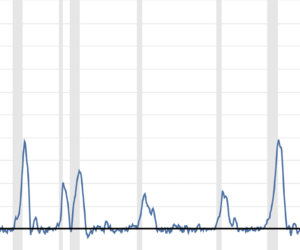In a significant development in the ongoing debate over data privacy, Texas Attorney General Ken Paxton filed a lawsuit against General Motors (GM) on Tuesday, accusing the automaker of illegally collecting and selling drivers’ data to insurance companies without their consent. This lawsuit marks the first legal action against an automaker since the Texas AG’s office launched an investigation into several car manufacturers in June, scrutinizing allegations of mass data collection and illicit sales.
The Allegations: A Deep Dive into GM’s Data Practices
According to a release from the Attorney General’s office, General Motors is alleged to have utilized technology in car models from 2015 and later to “collect, record, analyze, and transmit highly detailed driving data” every time a driver used their vehicle. This data, which includes extensive information about driving behaviors, was reportedly sold to multiple companies. Among these, at least two firms used the data to create “Driving Scores” for GM’s customers, which were then sold to insurance companies.
The lawsuit suggests that GM’s practices allowed insurance companies to access detailed metrics about drivers, including frequency of speeding violations and compliance with traffic laws. Some insurance companies offer voluntary programs that promise lower rates for safer driving, but the AG’s office claims GM misled its Texas customers. By encouraging participation in programs like OnStar Smart Driver, GM allegedly led customers to unknowingly consent to the collection and sale of their driving data.
Regulatory Gaps and State-Level Responses
The lawsuit highlights a critical issue in data privacy: the absence of comprehensive federal regulations governing data security and privacy. With the federal landscape lacking a detailed and modern data privacy law, states are increasingly stepping up to fill this regulatory gap. Texas, in this instance, is taking a proactive stance to protect consumer privacy amid the burgeoning data brokerage industry.
“The lack of robust federal data privacy laws has prompted states to take action to safeguard their residents’ data,” said a spokesperson from the Attorney General’s office. “We are committed to holding companies accountable for any unauthorized collection and sale of personal data.”
General Motors’ Response
In response to the lawsuit, a GM spokesperson stated, “We’ve been in discussions with the Attorney General’s office and are reviewing the complaint. We share the desire to protect consumers’ privacy.” GM’s statement underscores the company’s willingness to engage with regulators and address the concerns raised, while also asserting its commitment to consumer privacy.
The Broader Impact on the Automotive Industry
This lawsuit against General Motors could have broader implications for the automotive industry and beyond. As data collection and usage become increasingly integral to business models, companies across sectors are facing heightened scrutiny regarding their data practices. The outcome of this case may set a precedent for how companies must handle consumer data, potentially leading to stricter regulations and more transparent practices industry-wide.
The case also underscores the growing importance of data privacy for consumers. As digital technologies advance and data collection becomes more sophisticated, there is an increasing demand for clear, effective regulations that protect individual privacy rights.
Looking Ahead
As the legal process unfolds, it will be crucial to monitor the responses from other automakers and industries potentially impacted by similar allegations. The Texas lawsuit serves as a reminder of the pressing need for updated data privacy laws and more stringent oversight to ensure that consumer data is handled ethically and transparently.
In conclusion, the lawsuit filed by the Texas Attorney General against General Motors not only addresses specific allegations but also highlights a critical issue in the broader context of data privacy and security. It reflects a growing trend of state-level action in the absence of comprehensive federal regulation and may pave the way for future legal and regulatory developments in the data privacy landscape.




